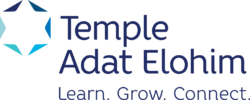Welcoming Rabbi Diamond
<img src=”https://adatelohim.staging.wpengine.com/wp-content/uploads/Rabbi-Diamond-and-Cantor-Photo-e1530132649350.jpg” alt=”” width=”270″ height=”203″ class=”alignleft size-full wp-image-12904″ />
Dear Members of TAE,
We are about to welcome Rabbi Barry Diamond as our settled rabbi as of July 1st and want to begin the process of creating or re-establishing our relationships with Rabbi Diamond. While many of us have had opportunities to get to know Rabbi Diamond over his previous two years serving as our interim rabbi, he has requested to meet congregants and ECC families in a small, intimate setting so that he can get to know us, connect again, and hear our expectations for TAE and our clergy.
We are looking for congregants and ECC families that would be willing to host the Rabbi for either a lunch date, (for maybe no more than 8 people) on a Tuesday or Wednesday afternoon or a gathering for dinner or dessert (for maybe no more than 12 people), on a Tuesday or Thursday evening. We are envisioning that these gatherings can be anything from a light lunch, “nosh,” dessert, or a full sit-down dinner -your choice. If finances are prohibiting you from participating, please feel free to reach out to Sandy Greenstein @ 818-648-3247 or myself @ 805-796-6308.
We will be starting with dates in July and August for the summer and if the need arises to add more days we can see about extending the dates.
If you, your havurah, or anyone you may know, would like to host the Rabbi, please contact Doreen at daustad@adatelohim.com to secure a date. Your date will be selected based on availability.
If you would like to join a gathering that is already arranged, please go to https://adatelohim.shulcloud.com/form/meetingrabbidiamondsignup to find available locations, dates, and times of gatherings you can join.
These will be the first of many formal and informal opportunities to get to know Rabbi Diamond and for him to get to know us.
Juli Rycus
Transition Chair
